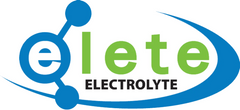Intense work or exercise in the heat or illness can quickly lead to dehydration. Drinking lots of fluid with electrolytes helps eliminate that risk. Dehydration is a common issue that can affect anyone, from athletes to those simply going about their daily routines. It occurs when the body loses more fluids than it takes in, disrupting the delicate balance of water and electrolytes that our cells need to function properly. Electrolytes play a crucial role in preventing dehydration and maintaining overall health. In this post, we will explore how electrolytes help prevent dehydration and why they are essential for our well-being.
Dehydration occurs when the body loses more fluids than it takes in, leading to an imbalance that can affect normal bodily functions. Recognising the symptoms of dehydration early is crucial for taking prompt action to rehydrate and prevent serious complications.
Symptoms of Dehydration:
Thirst:
- One of the earliest signs of dehydration is feeling thirsty. It’s your body’s way of signalling that it needs more fluids.
Dry Mouth and Lips:
- A dry or sticky feeling in the mouth and dry, chapped lips are common signs.
Decreased Urine Output:
- You may notice that you’re urinating less frequently and that your urine is darker than usual, which indicates concentrated urine.
Fatigue:
- Dehydration can cause feelings of tiredness and low energy, making it difficult to perform everyday tasks.
Dry Skin:
- Skin may appear dry or less elastic. Pinching the skin on the back of your hand and seeing how quickly it returns to its normal position can indicate hydration levels; slow return suggests dehydration.
Headache:
- Lack of sufficient fluids can lead to headaches or migraines.
Dizziness or Lightheadedness:
- Feeling dizzy or lightheaded can occur, especially when standing up quickly.
Muscle Cramps:
- Dehydration can cause muscle cramps due to imbalances in electrolytes like sodium and potassium.
How Electrolytes Prevent Dehydration
- Enhancing Water Absorption:
- Electrolytes improve the body's ability to absorb water. Sodium and glucose work together to increase the absorption of fluids in the intestines, which is why many oral rehydration solutions contain both.
- Stimulating Thirst Mechanism:
- Sodium levels in the blood help stimulate the thirst mechanism. When sodium levels are high, it signals to the brain that the body needs more water, prompting you to drink fluids.
- Balancing Fluid Intake and Output:
- Electrolytes help balance the amount of water your body retains and excretes. For example, aldosterone, a hormone regulated by sodium levels, helps control how much sodium (and thus water) your kidneys retain or excrete.
- Preventing Muscle Cramps:
- Electrolytes like potassium and magnesium are vital for muscle function. Dehydration can lead to imbalances in these electrolytes, causing muscle cramps. By maintaining proper electrolyte levels, you can prevent these cramps and ensure muscles work correctly.
Electrolytes are essential for preventing dehydration and maintaining overall health. They regulate fluid balance, enhance water absorption, stimulate the thirst mechanism, and ensure proper cellular function. By consuming a balanced diet and staying hydrated, you can maintain proper electrolyte levels and avoid the complications associated with dehydration. Whether you’re an athlete, a busy professional, or someone managing a chronic condition, paying attention to your electrolyte intake is key to staying healthy and hydrated.

